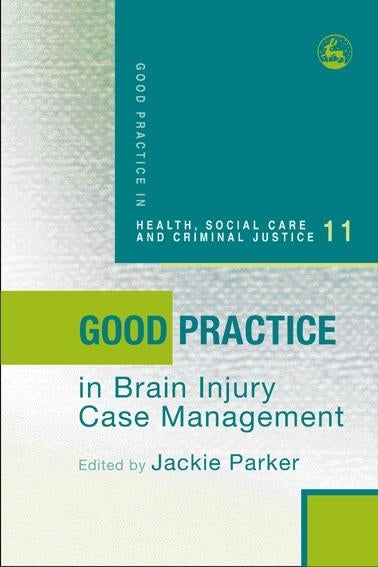
Press Reviews
British Journal of Occupational Therapy
A practical guide, clearly outlining the role of the case manager and focusing on aspects of good practice in case management. A number of case studies and case histories are used to illustrate and highlight points made. It investigates factors relevant during transitional periods, rehabilitation and community integration and strategies for implementing support plans... an extremely useful text for those who are involved, in brain injury case management.
The Journal of Interprofessional Care
This book is integral to, and therefore necessary reading for, professionals involved with brain injury in the short, mid and long-term phases of recovery. It is also accessible and informative for those primarily affected by ABI, when reflecting on their individual experience of injury, rehabilitation and case management. I found it to be a very competent publication, which not only provides education and information to various professionals, but also crucially connects with the tens of thousands of people who continue to experience the ramifications of brain injury firsthand. In providing complex information in a clear and readable format and enlightening examples from case studies, it realises its aim well... In conclusion, the ultimate recommendation that I can give is to state that Good Practice in Brain Injury Case Management is regularly used as reference material within the case management services of Rehab UK.
Dr Nicholas Priestley, Consultant Clinical Neuropsychologist
One of the most important and practical volumes on the delivery of brain injury services to appear in the last ten years and it sets a gold standard of best practice. It is essential reading.
British Association of Brain Injury Case Managers
Whatever stage your practice is at, you can learn something here to your, and your client's, advantage.
Annie Gent, Director of Clinical Programmes, Brain Injury Services
This is an excellent book for present and would be Brain Injury Case Managers. It would also be of benefit for those who provide services for people with other clinical and legal responsibilities for this group of clients.
Denzil Lush, Master of the Court of Protection
I congratulate Jackie Parker on assembling such a formidable team of experts in this field [and] I am delighted that this book has found room to include a number of personal testimonies, some of which will bring a tear to the eye, or make you want to laugh out loud, or fix in you a steely determination to do whatever is necessary to improve the quality of the lives of people, and their families, who experience the problems of an acquired brain injury on a day-to-day basis.
Claire Booth, Director of Westcountry Case Management Ltd
This excellent book... clarifies the role of the brain injury case manager. Each chapter is written by a different author so the reader benefits from the collective experience and knowledge of professionals currently working as or with case managers... However, many of the chapters are relevant for case managers working with clients with complex needs other than brain injury as they address core case management principles.When many of us started out on the unclear path that has lead to current brain injury case management practice in the United Kingdom we would have valued a clear honest book such as this. It is long awaited and needed and will not only assist currently practising case manager but be a practical textbook for new and would be case managers. A highly recommended purchase.
